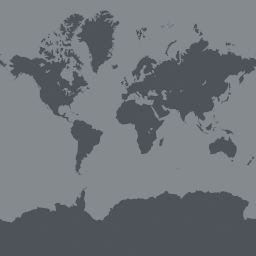The countries of the former Soviet Union maintain significant stores of biodiversity information in the form of specimen collections and scientific publications from the past 150 years. However, most scientific communities active in the study of regional- and global-scale biodiversity do not yet share data through the GBIF network due a variety of factors, including the lack of information on relevant collections, institutions and specialists, the absence of digital data and the fact that most materials published before the 2000s are either in Russian or other national languages.
The project aims to improve access to biodiversity data from specimen collections and bibliographic resources in Belarus, Latvia and Lithuania. While the scope of action focuses on the three countries within their current boundaries, it expects to reach deep into the studies of regional biodiversity, including Polish and Russian legacy data.
Planned activities include:
- Identifying and inventorying the organizations in Belarus, Latvia and Lithuania that hold specimen collections
- Assessing the potential for digitizing and mobilizing bibliographical resources in library collections
- Creating a comprehensive resource of information materials in Russian that describe essential knowledge on biodiversity informatics, based on materials available from GBIF Portal
- Engaging key regional organizations through workshops and a conference
Project progress
In March 2021 the project held an online workshop "The dataset preparation in the Global Biodiversity Information Facility (GBIF)" where participants created test datasets for publication through the IPT located in the NPC for Bioresources. Based on the results of the event the project developed, in Russian, the training manual ‘Quick guide on preparing datasets for publication on GBIF’. The guide contains brief information about GBIF and an algorithm for actions to prepare data sets and place them in GBIF.
In November 2021 the project then held online the 1st International Scientific Conference “Global Biodiversity Information Facility: the modern development trends in Belarus, Latvia and Lithuania”. The main goal of the event being the assessment of the state of knowledge of the biological diversity of eukaryotes in Belarus, Latvia and Lithuania.
Both events in the region were of great benefit and in total, more than 100 people from eight 8 countries took part.
During the project it was revealed there was an increased interest in the activities of GBIF among all participants. The project identified 39 organizations (Belarus - 18, Latvia - 13, Lithuania - 8) that could obtain the status of becoming a GBIF data publisher and by final reporting, five already had this status and others were either in consideration of joining or in the process applying to join.
At final reporting the project developed the website of the national GBIF Node of Belarus, https://gbif.by/. This includes basic information about the potential of Belarus in the field of biological diversity research, as well as resources from the project.
Other activities accomplished by the end of the project included the compilation of:
- a list of publications on eukaryotes of the region; the Belarusian list published on gbif.by, with the lists for Latvia and Lithuania expected to be published on partner websites.
- a list of organizations engaged in the study of biological diversity in the region, for which these same organizations are holders of collection funds, with the estimated total of about 2.5 million herbarium sheets and about 5 million copies in zoological collections. This list is available on gbif.by, also a list of existing and publicly available databases, including from the civil science category.
A number of project datasets were also published and are available here.


